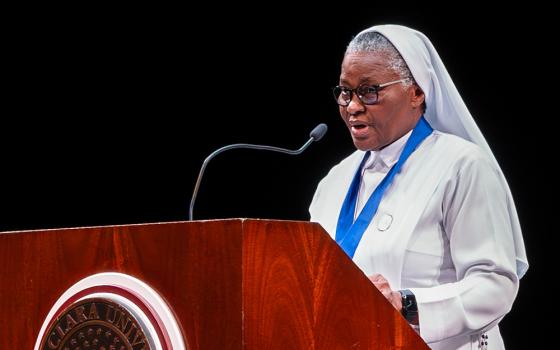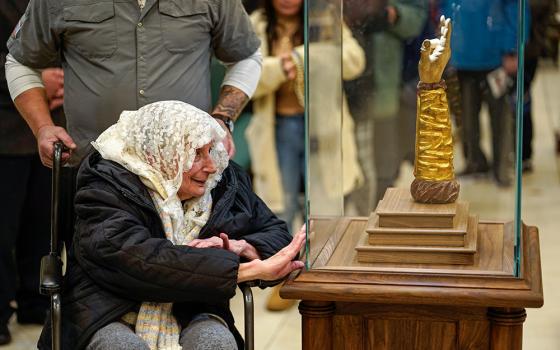People are wondering why the Obama administration does not give the Iraqi Kurds all the weapons they need to defeat the Islamic State.
The Kurdish and Islamic State fighters were fairly evenly matched until the Iraqi troops abandoned Mosul and left behind all of the weapons with which we had armed them. Now these weapons are being used against the Kurds and others. It seems to make perfect sense to arm the Kurds so they can defend themselves and perhaps even defeat the Islamic State.
However, an all-out attack on the territory controlled by the Islamic State would also constitute war on their Sunni allies, who right now hate Nouri al-Maliki's government more than the Islamic State. America should not be part of an anti-Sunni war. It is one thing to blow up Islamic State convoys and fighters in the desert, but U.S. air power cannot be used to retake Mosul without all the collateral damage that has gotten us into difficulties before.
In addition, if we give the Kurds enough arms to defeat the Islamic State, then that is the end of a united Iraq because the same weapons they use against the Islamic State, they will be able to use to defend their independence from Bagdad. If they liberate Mosul, they will not give it up to the national government.
As a result, the Obama administration decided to use air power to stop the advance of the Islamic State fighters and to destroy some of the weapons they inherited from the Iraqi army. This gives the Iraqis time to get their act together and form a government of Kurds, Sunnis and Shiites without al-Maliki.
Years ago, Vice President Joe Biden said we should accept the inevitable and allow Iraq to divide into three parts. The U.S. foreign policy establishment opposes this just as it opposed the breakup of Yugoslavia. Europeans, including the Vatican, knew the history of the area better and knew it could not hold together without a strongman like Tito. The United States was the last major power to give up on a united Yugoslavia. Will we repeat this mistake in Iraq?
There are lots of reason to want a united Iraq. Although there are areas of the country predominantly populated by one group or another, there are other areas where the groups are mixed (as was the case with Kosovo), and any ethnic/religious division could be difficult and bloody.
The U.S. would also prefer a strong, united Iraq as a neighbor to Iran rather than three separate entities who could be pushed around by a much stronger Iran.
Catholics leaders also prefer a united Iraq, remembering how much better off they were under Saddam Hussein than in the post-invasion Iraq.
It is not the place of Americans to decide this question. It is good to push for reconciliation and unity, but if that fails, we should be prepared if a divided Iraq becomes inevitable. Someone needs to begin preparing plan B and how to do it with the least amount of bloodshed, just in case.
[Jesuit Fr. Thomas Reese is a senior analyst for NCR and author of Inside the Vatican: The Politics and Organization of the Catholic Church. His email address is treesesj@ncronline.org. Follow him on Twitter: @ThomasReeseSJ.]
Editor's note: We can send you an email alert every time Thomas Reese's column, Faith and Justice, is posted. Go to this page and follow directions: Email alert sign-up.




